
Rice University experts are available to discuss a variety of hurricane-related topics with the media.

Rice University experts are available to discuss a variety of hurricane-related topics with the media.

Sister cities can help communities better navigate the climate crisis, suggests Rice research
Anthropologists at Rice University suggest in a new paper that establishing networks of 'sister cities' dedicated to addressing the impact of natural disasters can mitigate the devastation wrought by climate change.

Faculty, staff, students honored for excellence in teaching, mentoring, service
Each year, Rice honors members of the university community who have served students through outstanding teaching, dedication and service.

New book from Rice anthropologist: ‘Our fossilized civilization has no sustainable future’
What would the world look like with no fossils — and therefore no fossil fuels?
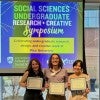
Student research highlighted during Social Sciences Undergraduate Research + Creative Symposium
Research on racial identity and fair pay, mental and physical health, foreign affairs and other topics was on display at the Social Sciences Undergraduate Research + Creative Symposium (SSURS) held April 11 at Rice University’s Kraft Hall.

Exploring big questions at Rice
At Rice University, the School of Humanities fosters an environment where students are encouraged to grapple with profound inquiries through its Big Questions courses, and anticipation is already building for the thought-provoking topics coming in fall 2024: “What Is Religion?” and “What Is Home?”

Innovation focus of April 1 Research Relay hosted by Rice School of Social Sciences
On April 3, the School of Social Sciences will hold the next Research Relay in Kraft Hall 130 from 12 to 1 p.m. Lunch will be served during the event.

‘Solarities’ examines the complex relationships humans have with the sun
The sun is making headlines as Americans prepare for the last total solar eclipse until 2045 . But eclipse or no eclipse, our solar system’s star is an essential part of life on Earth, and at the same time, the source of drought and demise to the very living things it fuels.
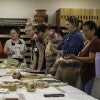
Old bones come alive at Rice archaeology workshop
Old bones from long-dead animals came alive at the Zooarcheology and Osteology Academy, a hands-on archaeology workshop held Feb. 10-11 at Rice University — just days before World Anthropology Day Feb. 15.
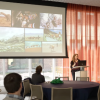
Research Relay focuses on global research from Rice School of Social Sciences
The Rice University School of Social Sciences kicked off its spring research events with a Research Relay Feb. 12 highlighting global research in social sciences.

Rice Social Sciences to kick off spring 2024 with research relay focusing on global work
The School of Social Sciences will host an impressive lineup of research events this semester, opening with a Research Relay on February 12 that will highlight global research in social sciences.

A new Rice University study of the remains of modern African antelopes found that AI technology accurately identified animals more than 90% of the time compared to humans, who had much lower accuracy rates depending on the expert.
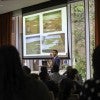
STaRTing the school year right
For the third year in a row, Rice’s School of Social Sciences held STaRT@Rice, an innovative program that provides a snapshot of the research process coupled with professionalization training.
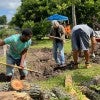
A new National Science Foundation-funded study by Rice University will examine whether design strategies aimed at improving civic engagement in stormwater infrastructure could help reduce catastrophic flooding.

Social Sciences to hold Research Relay featuring new faculty during STaRT@Rice opening reception
On October 6, 2023, the School of Social Sciences will host the second Research Relay of the semester as part of the opening reception for this year’s STaRT@Rice program.